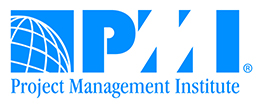Archive for the ‘ Hot Topics ’ Category
Lessons in Bad Stakeholder Management
Stakeholders can make or break your project so it’s crucial to involve them early, understand their needs, buy them into the project and set expectations. The project management literature is riddled with examples of poor stakeholder management. (See, e.g., Denver International Airport.) But it has recently occurred to me that one of the most
Solving the right problem – training as panacea
One of the things I’ve personally identified as a top ten reason for projects failing is using training to solve other institutional problems. I ran into this situation recently and it provides a perfect example of what I mean. I am going to briefly describe a prospect’s situation but I’ll disguise the industry the customer comes
The Use of Assessments in Gauging Project Manager Maturity (Part 1)
Increasing project manager maturity in your organization by using assessments In many organizations, there is no clear path to becoming a project manager. For as many companies as there are that have a path, there are those that do not. Team members are often assigned to be PM’s because of their availability or even because they are good at
Project Summit recording on project maturity/best practices
I recently participated in a Project Summit wherein I spoke on the topic of assessing your project managers in a 360 for their perceived skill set. The long-term purpose of this (and of project health checks) is to improve the project maturity of your organization. Short-term it can assist in deciding what training and/or mentoring might be needed.
Project Manager Success Summit
NOTE: The summit is over. But you should still be able to purchase audios of the presentations as below. On Sunday April 27 at 2pm EST, I’ll be presenting at an exciting symposium called “Project Manager Success Summit.” It runs from April 25 – 27, 2014. It’s not “live” but is in fact
Ideas for project management book
I am planning to write a book on project management which (I trust) will be a useful book for the every day project manager. I want someone to pick this book up and better understand things such as stakeholder management, communications, running meetings, important project artifacts, etc. It won’t be some gigantic compendium of everything
Effective communications (email) 2
So I talked last time about the importance of effective email communications. One thing I should add to that discussion is the following: is this email really necessary? As we know, everyone on a project is inundated by far too many emails. One student of mine went so far as to create a rule in his email package. If the note wasn’t addressed
Effective communications (Email)
I have heard through students and from reading articles that some people, especially in the millennial generation, are getting away from email. Towards what I wondered. In one article a team member said something along the lines of, “By my tweets ye shall know me.” Well, that’s fine if he can somehow convey information concisely
Effective project communications (3)
As mentioned in my last post, PMI has recognized that a significant number of projects fail due to poor communications. So knowing that, our goal on the project is to prevent bad communications as much as possible, thereby reducing risk to the project. How can we do that? I will suggest a few things: -Communications management plan: per PMI this
PMI study – Poor project performance leads to dramatically higher costs
The Project Management Institute published a paper (appears to be 2012) called, “PMI’s Pulse of the Profession: The High Cost of Low Performance.” The executive summary is this: “When organizations continue getting better at executing their projects and programs, they drive success. But when organization executives undervalue
Portfolio Management Certificate from PMI
PMI has added a new certification in portfolio management. Other than as a cash cow, I don’t see why. According to the PMBOK, “Portfolio management refers to the centralized management of one or more portfolios to achieve strategic objectives.” This sounds to me very much like a senior management role. Question – do senior managers

